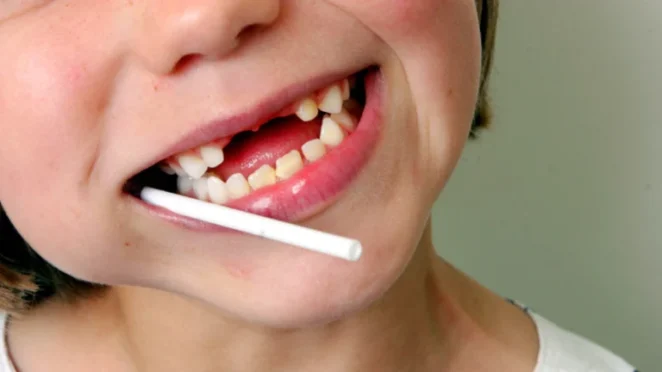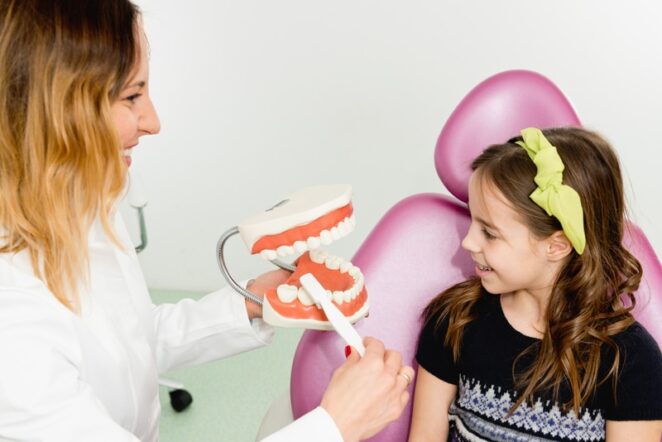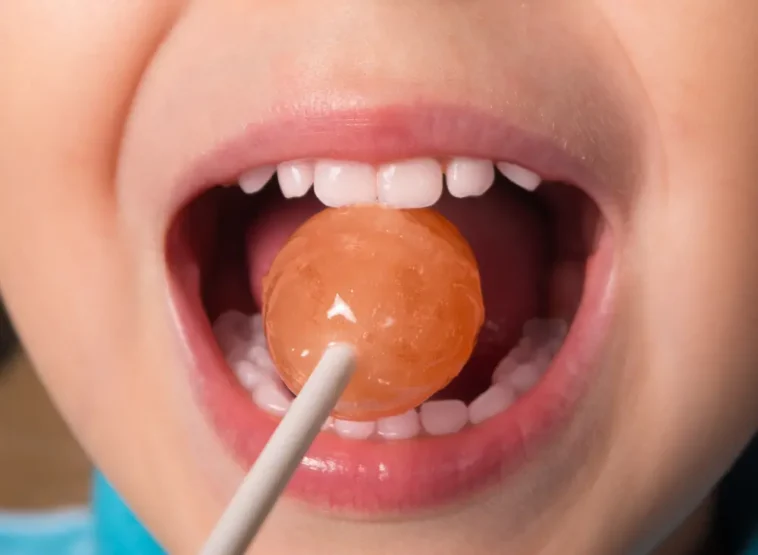In today’s society, children are often bombarded with sugary treats. From birthday parties to holidays, sweets seem to be ever-present in a young child’s life. However, as parents, it is crucial to understand the correlation between sweets and dental health. It’s time to take the matter into our own hands and implement custom decay prevention strategies to ensure our children’s smiles stay bright and healthy.
What is the Connection Between Sweets and Dental Health?

When it comes to dental health, sugar plays a significant role in tooth decay. Consuming excessive amounts of sugar can have detrimental effects on our oral health. Let’s delve deeper into the role of sugar in tooth decay and how it impacts a child’s oral health.
Tooth Decay
When you consume sweets, the sugar interacts with the bacteria present in your mouth to form acids. These acids can erode the enamel, which is the outer protective layer of your teeth, leading to tooth decay and cavities.
Plaque Formation
Sugar acts as food for harmful oral bacteria, which proliferate when they metabolize sugar, leading to plaque formation. Plaque is a sticky film of bacteria that adheres to the teeth and can harden into tartar if not promptly removed by regular brushing and flossing.
Gum Disease
The accumulation of plaque along the gum line can lead to gum diseases like gingivitis. If left untreated, it can progress to more severe gum infections like periodontitis, which can eventually lead to tooth loss.
Acid Production
The metabolism of sugar by oral bacteria results in acid production, which lowers the pH of the oral environment. This acidic environment is detrimental to tooth enamel and can cause demineralization, making teeth more susceptible to decay.
Increased Risk for Chronic Diseases
Chronic oral infections caused by excessive sugar consumption, like periodontitis, have been linked to other systemic diseases like heart disease and diabetes. Hence, maintaining good oral health by moderating sugar intake can also have implications for overall health.
Nutritional Deficiencies
Consuming sweets and sugary beverages frequently can displace healthier food choices and contribute to nutritional deficiencies. A diet lacking essential nutrients can adversely affect oral health, making it harder for the body to resist infection.
Erosion of Enamel
Besides sugar, many sweets also contain acids, either naturally occurring or added, which can cause erosion of the enamel, leading to tooth sensitivity and discoloration. Reducing the intake of sweets, maintaining a good oral hygiene routine, and regular dental check-ups are crucial steps towards preventing the detrimental effects of sugar on dental health. Establishing these healthy habits early on, especially in children, can promote a lifetime of strong and healthy teeth.
What are Custom Decay Prevention Strategies?

Every child is unique, and their dental care should reflect that. Custom decay prevention strategies are personalized plans created by dental professionals to help protect children’s teeth from decay and other oral health issues. These strategies take into account a child’s unique dental situation, lifestyle, and dietary habits to formulate a proactive and preventative approach towards maintaining oral health. At Junior Smiles of Stafford, the proficient pediatric dentist in Woodbridge, VA, assesses each child’s dental health to design a tailored decay prevention strategy.
Tailoring Dental Care to Your Child’s Needs
Working closely with your child’s dentist is crucial in developing a custom decay prevention strategy. Furthermore, it is essential to consider factors such as diet, oral hygiene routine, and any potential risk factors your child may have for tooth decay, and consult a dentist for expert guidance on preventive measures and restorative dentistry options.
Innovative Approaches to Decay Prevention
There are many innovative approaches to decay prevention available today. Sealants, for example, can be used to create a protective barrier on your child’s teeth, preventing decay from starting. Fluoride treatments can also strengthen tooth enamel and protect against cavities.
Why are Regular Dental Check-ups Important?

Regular dental check-ups are an essential part of maintaining optimal dental health for your child.
The Role of Dentists in Preventing Tooth Decay
Dentists play a crucial role in preventing tooth decay by identifying and treating any issues early on. Through regular check-ups, your child’s dentist can provide professional cleaning, assess their oral health, and offer personalized advice on maintaining good dental hygiene.
How Often Should Your Child Visit the Dentist?
It is generally recommended that children visit the dentist every six months. However, this can vary depending on individual needs and risk factors. Be sure to consult with your child’s dentist to determine the appropriate frequency for visits.
What are Healthy Alternatives to Sweets?

While it’s important to limit sugary treats, this doesn’t mean our children have to miss out on enjoyable snacks.
Snacks That Promote Dental Health
There are many snacks that not only satisfy cravings but also promote dental health. Fresh fruits and vegetables, such as apples and carrots, can help clean teeth and stimulate saliva production, which neutralizes acid. Cheese and yogurt are also great choices as they contain calcium and phosphates that strengthen tooth enamel.
Making the switch to healthier snacks may not be easy at first, but there are ways to make it more appealing to your child.
Making the Switch: Lower-Sugar Treats Kids Will Love
You can gradually introduce lower-sugar alternatives and incorporate them into your child’s favorite recipes. For example, you can try sweetening foods with natural sweeteners like honey or using mashed bananas instead of sugar in baked goods. With a bit of creativity, you can make healthier snacks just as delicious as the sugary ones.
How to Instill Good Oral Hygiene Habits in Children

Good oral hygiene habits should start early in a child’s life to set them up for a lifetime of healthy teeth and gums.
Making Brushing and Flossing Fun
Encourage your child to develop a regular brushing and flossing routine by making it a fun and engaging activity. Consider using toothbrushes and toothpaste with their favorite characters, playing their favorite song during brushing time, or creating a reward system for consistent oral hygiene practices.
As parents, we must also lead by example and demonstrate good oral hygiene habits.
What is The Role of the Parents in Modeling Good Dental Hygiene?
Show your child the importance of maintaining good oral health by practicing proper brushing and flossing techniques yourself. By making oral hygiene a family affair, you reinforce the importance of taking care of one’s teeth and gums.
Conclusion
From sweets to smiles, custom decay prevention strategies are crucial for every young sweet tooth. By understanding the connection between sweets and dental health, tailoring dental care to your child’s needs, scheduling regular dental check-ups, and promoting healthier snack alternatives, you can help protect your child’s oral health. And by instilling good oral hygiene habits and modeling them yourself, you lay the foundation for a lifetime of healthy smiles.
Remember, each child is unique, so be sure to consult with your child’s dentist to develop a personalized plan that suits their specific needs. Together, we can ensure our children’s smiles remain bright and cavity-free!




